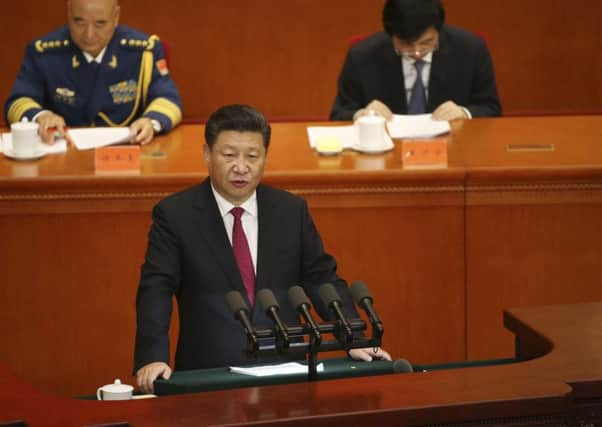China called to embrace Marxist roots


The televised speech on the party’s 95th anniversary represented one of Xi’s most pointed and lengthy addresses laying out his orthodox ideology, and again repudiated the belief held among some observers four years ago that Xi’s ascent might usher in greater reform.
Xi said that history has proven correct the party’s leadership of 1.3 billion people and that its stewardship remains essential for China to realise its “great rejuvenation,” a central theme of his administration.
Advertisement
Hide AdAdvertisement
Hide Ad“History tells us the Chinese people’s choice of the Communist Party to lead them toward the civilization’s great rejuvenation been correct, and that the party’s path of socialism with Chinese characteristics is also correct,” Xi told his audience of cadres gathered in Beijing’s Great Hall of the People. Challenged by a slowing economy, Xi has made increasingly frequent appeals for ideological unity, a throwback approach that contrasts with recent Chinese leaders who emphasised delivering economic growth as continued justification for Communist rule.
Since taking power in 2012, Xi has repeatedly called on the party rank-and-file, from officials to academics to journalists, to study Marxism while urging universities to stave off the infiltration of harmful foreign ideas, such as Western liberal democracy.
Although he has been more guarded about his opinions on free-market economics or the role of the state in the market, Xi has assertively pushed his political vision of highly centralised power. He has tightened his grip over numerous aspects of Chinese society, attacking liberal thinking within the party, cracking down on public dissent and demanding far greater control over the media and academic institutions.
Despite quoting Deng Xiaoping, China’s market-oriented reformer, in a brief passage about the importance of economic development, the Chinese leader did not delve extensively into how his Marxist ideology would influence economic policy at a time when the proper role and size of state enterprises remains one of the most hotly debated issues within official circles.